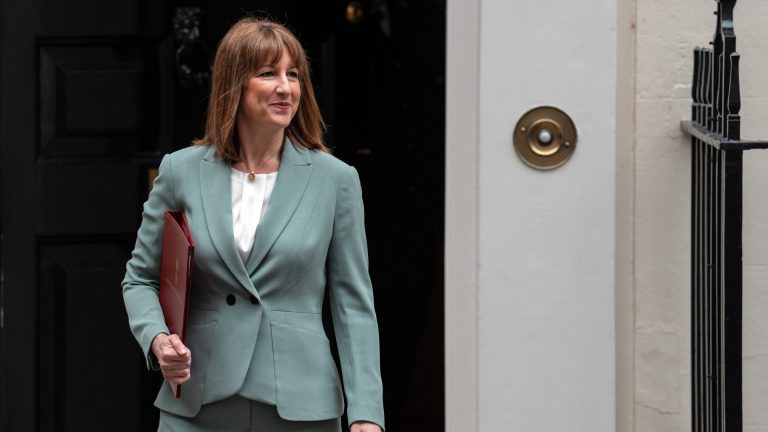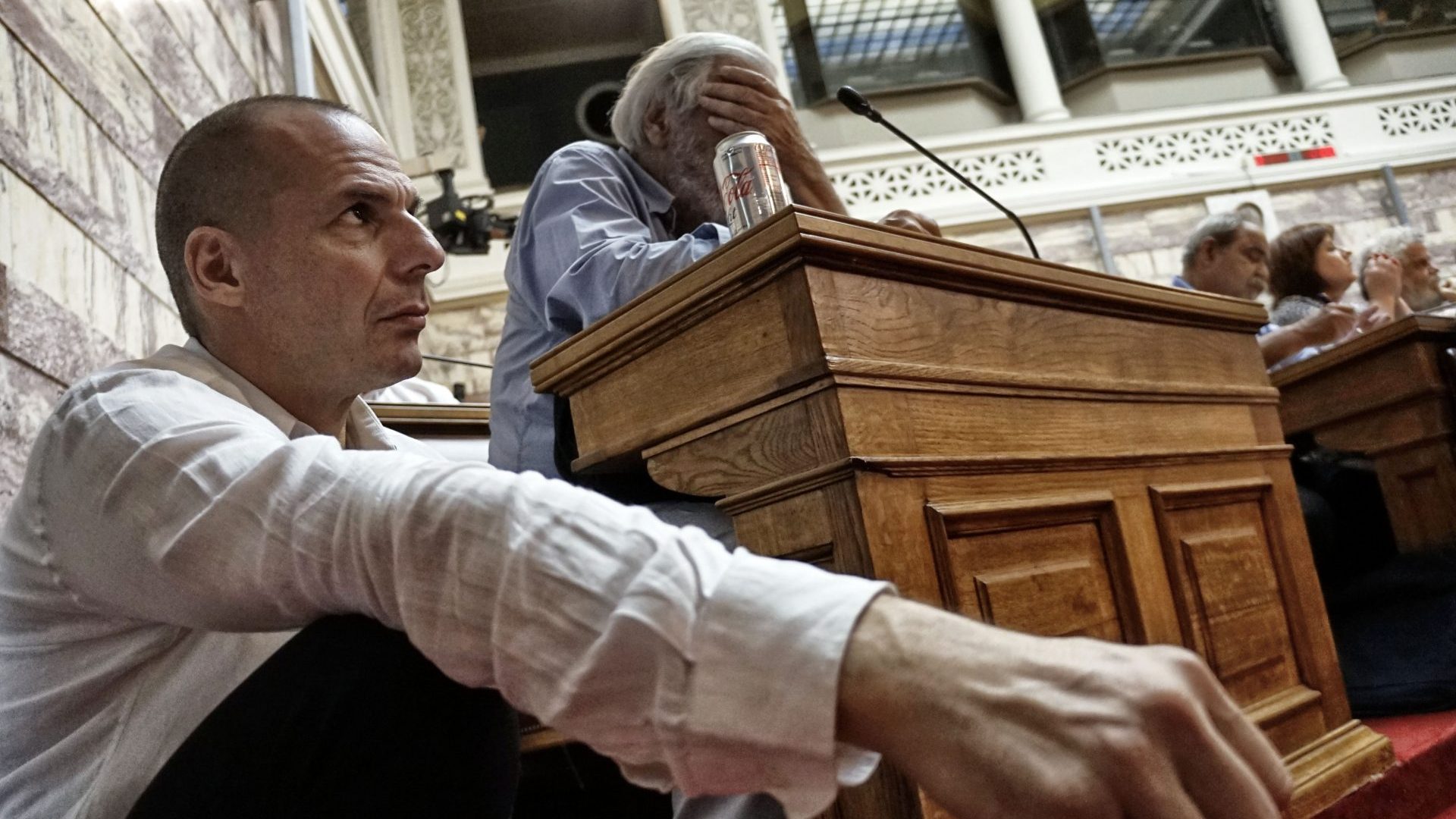In recent years, it has felt like honesty is in short supply in politics. There’s the £350m on the side of the bus that voters were promised Brexit would deliver for the NHS every week, deemed a “clear misuse of official statistics” by the Office for National Statistics. Jeremy Corbyn’s 2017 manifesto was stuffed with expensive goodies but it was clear he didn’t really know how to pay for them. In contrast, Keir Starmer’s Labour Party might seem a paragon of truthfulness, ministers taking every opportunity to remind us of the tough fiscal realities they inherited.
But with every week that goes by, it is becoming clearer that this government also suffers from an honesty deficit. And it was all too apparent in last week’s spending review, as the chancellor claimed to have “fixed the foundations” of the economy and that her fiscal decisions will boost growth.
The problems started with Labour’s election campaign. Deliberately risk-averse – bland, even – it was designed to turn the nation’s disaffection with the Conservatives into the maximum number of seats. The pitch to the country was “everything that’s going wrong in Britain today, from stagnating living standards to the number of small boat crossings is down to the incompetence and bad political choices of the last lot; vote for us, and we will fix it, and all without having to put your taxes up”. As an election strategy, it worked beautifully.
As a governing pitch, though, it was neither realistic nor honest. Conservative governments indeed made dreadful political choices that made the UK’s long-standing structural problems worse, through Brexit and years of unnecessary public spending cuts that have undermined the public realm, even as interest rates were practically zero. The years after the financial crisis should have been about stimulating business investment through public spending on infrastructure, not hacking away at the state and erecting costly trading barriers with our neighbours.
But that’s only half the story. For decades, much of the British economy has suffered from poor productivity growth, dampened by low levels of investment – although until 2008 this was masked by a burgeoning financial services sector, and debt-fuelled consumer spending powered by an over-inflated housing market. The financial crisis laid this all bare and living standards have pretty much flatlined since then.
Like other wealthy societies, Britain has an ageing population and a falling fertility rate that will create an awesome fiscal crunch as there are ever-fewer working-age taxpayers to fund the health and care requirements of their older relatives. The world has become less stable just as the United States is withdrawing from its role as global policeman into economic protectionism, requiring European states to invest more in defence even as their economies are hit by American tariffs.
It’s this half of the story that needs to frame the government’s diagnosis of what needs fixing, and what its solutions are. But it’s missing in action from Starmer’s narrative, and so absent from his governing agenda: listening to ministers, you’d be forgiven for thinking Britain’s problems start and stop with the governing choices of the Conservatives, and that changing the guard and doing things better and more competently without really shifting the fundamentals will deliver a rosier future.
The spending review epitomises this. By increasing national insurance on employers last Autumn and relaxing her fiscal rules to allow for more borrowing for public investment, Rachel Reeves ensured she had some extra cash to invest in public services, most notably the NHS, and to inject into capital spending on defence and net zero.
Suggested Reading


Rachel Reeves’s best day still doesn’t feel like enough
So the situation is markedly better than the counter-factual of the completely unrealistic spending plans the Conservatives said they would stick to were they re-elected. But unfortunately for Labour, voters don’t assess governments using counter-factuals.
Even the biggest public spending winner, the NHS, has only been awarded an average 2.7% real terms increase per year over this parliament, far below the 4% on average it received from its inception in 1948 to 2010, and less than what experts think is needed for an ageing society with rising healthcare needs. It will stop the NHS getting as bad as it would have done under the Conservatives, but is unlikely to get it fighting fit. On the much-needed increase in capital spending, the medium-term payoff may not be so great: the OBR has estimated that it will increase the productive capacity of the economy by just 0.14% of GDP by the end of the decade, although in the very long run it thinks it will add 1.4%.
Reeves is also imposing tough and decidedly un-Labour cuts in some areas of public spending in order to free up resources for elsewhere: the overseas aid budget has been dramatically scaled back, and planned disability welfare cuts that will see some disabled people lose as much as £10,000 a year in benefits. If the economy takes a turn for the worse in the next few months, she may well have to put taxes up again in the autumn if she wants to keep to her fiscal rules, or find further cuts.
Perhaps Starmer and Reeves really believed their narrative going into the last election. Perhaps they thought best to get into government first, then worry about delivering later.
Either way, they’ve got a problem: they didn’t front up with voters about the tough trade offs facing the country; or that the City-powered economic boom of the 2000s is not going to be easily or quickly come by again; and that the economic reality of an ageing population makes today’s fiscal problems look like child’s play. They came in promising sunny uplands, but all they’ve got to deliver is incrementalism.
This is today the biggest political risk for Labour: that it doesn’t meet the high expectations it set for itself with voters during the election campaign; that by the time of the next election, people really don’t feel that much better off, or that the NHS has improved considerably, or that care for their older parents is any easier to arrange, even if things are better than they would have been under another government. In a context where many voters have little faith in politicians’ ability to deliver and trust in politics has more than halved in the last four decades, that could undermine trust even more and drive voters towards the populism of Reform.
There are no easy answers, but it would be a mistake for Starmer and Reeves to continue to move towards the next election hoping a change in the global economic headwinds will save them, but never really starting a proper conversation with voters about the tough realities. The public needs and deserves politicians who are willing to be more upfront with them about the structural problems that will take longer than five years to fix; a necessary first step to restoring trust in politics.




